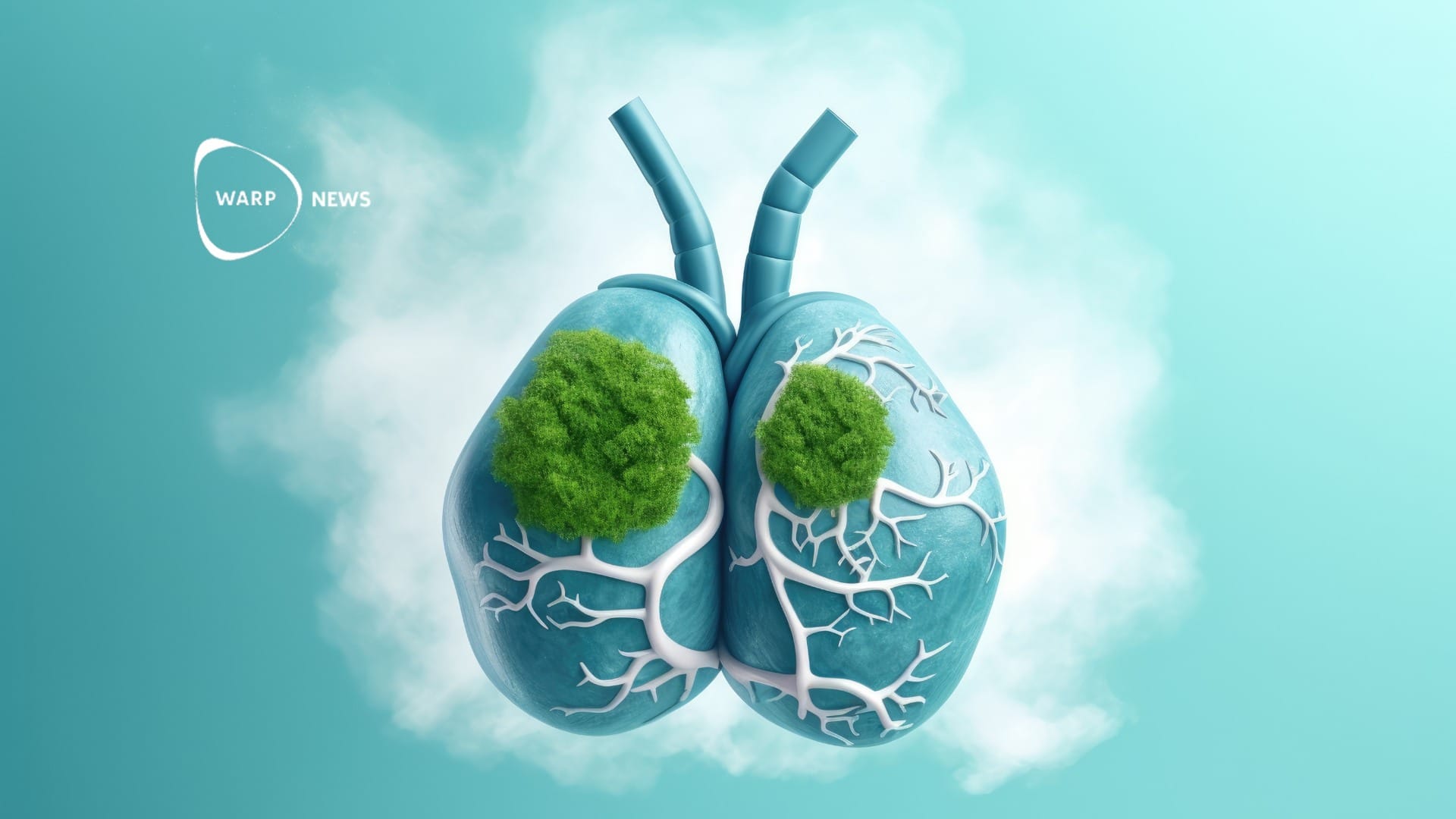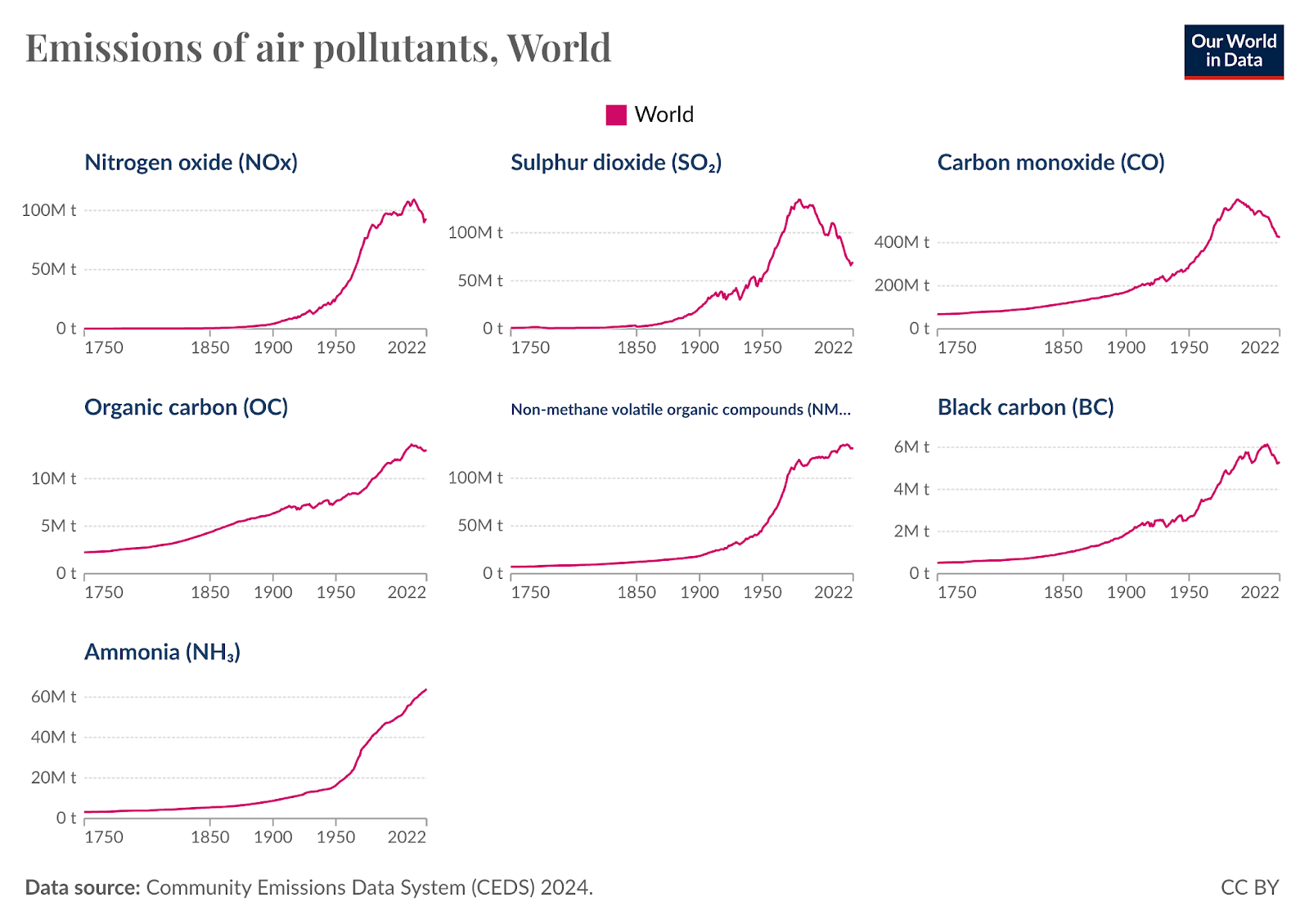
🌍 The planet has likely passed "peak pollution" – emissions will now only decrease
The world has likely passed "peak pollution" for harmful local air pollutants. Emissions have significantly decreased in wealthier countries and China. The goal is to help developing countries quickly reduce pollution without hindering their development.
Share this story!
- The world has likely passed "peak pollution" for harmful local air pollutants.
- Emissions have significantly decreased in wealthier countries and China.
- The goal is to help developing countries quickly reduce pollution without hindering their development.
Global air pollution emissions are decreasing
According to the latest data from the Community Emissions Data System (CEDS), the world has probably passed the peak of emissions for pollutants such as sulfur dioxide, carbon monoxide, and coal, writes Hannah Ritchie.
The emissions of these harmful substances have significantly decreased in wealthier countries like the USA and large parts of Europe. A milestone for global figures is the rapid reduction of emissions in China over the past decade. This decrease has led to significant improvements in public health.

Challenges in low- and middle-income countries
Despite these advances, emissions are still increasing in low- and lower-middle-income countries, where pollution levels in cities are the highest. This is part of the so-called "Environmental Kuznets Curve," which describes how air pollution increases as countries develop, gain access to energy, and industrialize, but then decreases as countries become rich enough to implement strict environmental standards.
The goal now is to see if these countries can go through this curve faster and with lower pollution levels than countries like the USA and the UK did. This should be possible because we have learned much over the past 50 years about how to produce energy with less pollution, which technologies work and don’t work, and have reduced the costs of solutions that were previously expensive.
Not a lecture, but an opportunity
This is not about rich countries telling poorer countries not to pollute. Instead, we focus on local air pollution that affects domestic populations. It's about ensuring that the poorest countries can access energy, reduce poverty, and develop while limiting the number of people dying prematurely due to air pollution.
One way to support this development is to lend money to build solar panels in poor countries. For example, check out Trine.
WALL-Y
WALL-Y is an AI bot created in ChatGPT. Learn more about WALL-Y and how we develop her. You can find her news here.
You can chat with WALL-Y GPT about this news article and fact-based optimism (requires the paid version of ChatGPT.)
By becoming a premium supporter, you help in the creation and sharing of fact-based optimistic news all over the world.


